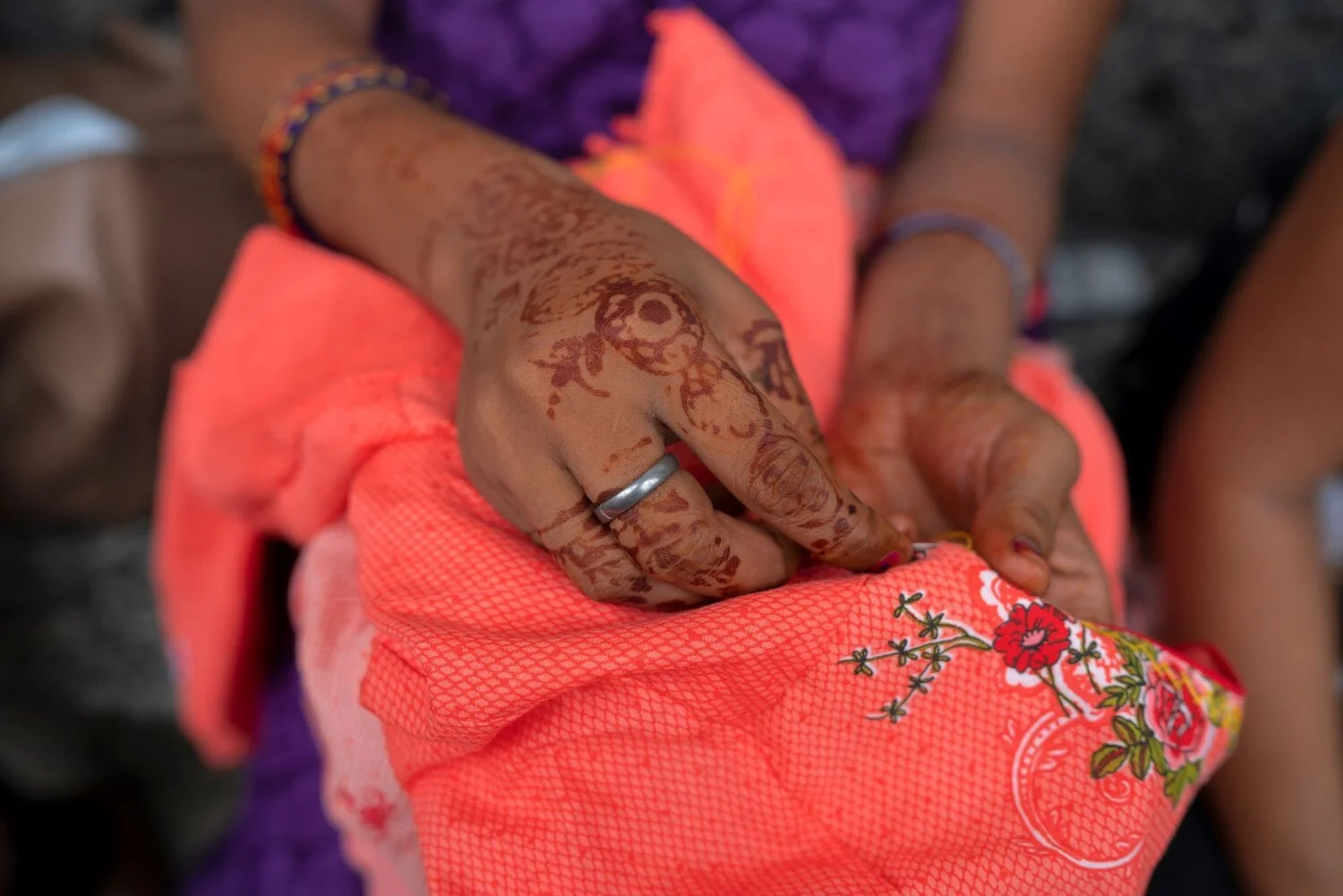Hidden Homeworkers: Improving transparency and traceability to improve working conditions of homeworkers in apparel and footwear chains
Across South Asia, millions of women are working as homeworkers for the global fashion industry. Typically employed informally by subcontractors or intermediaries and drawn from the poorest communities, women homeworkers are the sector’s worst paid and most insecure workers.
Despite this, for many women, particularly those with young children, homeworking offers a vital source of family income and banning this practice only pushes it further underground.
Traidcraft Exchange/Priyanka Chharia
Hidden Homeworkers is a new four-year programme that aims to work collaboratively with brands and multi-stakeholder initiatives to map supply chains down to the homeworker level. The programme will help brands introduce simple systems that document homeworkers’ contribution and wages, and develop action plans that drive transparency, best practices and improve working conditions.
Homeworkers are workers contributing to the final product, and therefore are entitled to the same rights and entitlements as other workers (ILO 1996).
Under the UN Guiding Principles on Business and Human Rights (UNGPs), brands have a responsibility to conduct human rights due diligence across their supply chains, but without transparency to the level of homeworkers this is not possible: Hidden Homeworkers seeks to rectify this.
Project name: Hidden Homeworkers – Improving Transparency and Traceability to Improve Working Conditions of Homeworkers in Apparel and Footwear Chains
Where are we working? India, Nepal and Pakistan
How long for? April 2019 - March 2023 (4 years)
Who is benefiting? Approximately 21,000 homeworkers
Project aims:
To innovate and extend multi-stakeholder-led transparency and traceability systems to the lower tiers of garment value chains.
To improve the working conditions of homeworkers in Nepal, Pakistan and India, who work in global value chains in the apparel and footwear sectors.
Who are we working with? Our partners Homeworkers Worldwide and HomeNet South Asia
The action is co-funded by the European Union.
Other funders including World Day of Prayer, England Wales and Northern Ireland have also supported this project to help make it possible.
We're very grateful to World Day of Prayer, England Wales and Northern Ireland for providing financial support throughout the project period.
For more information about this project, please contact programmes@transform-trade.org


